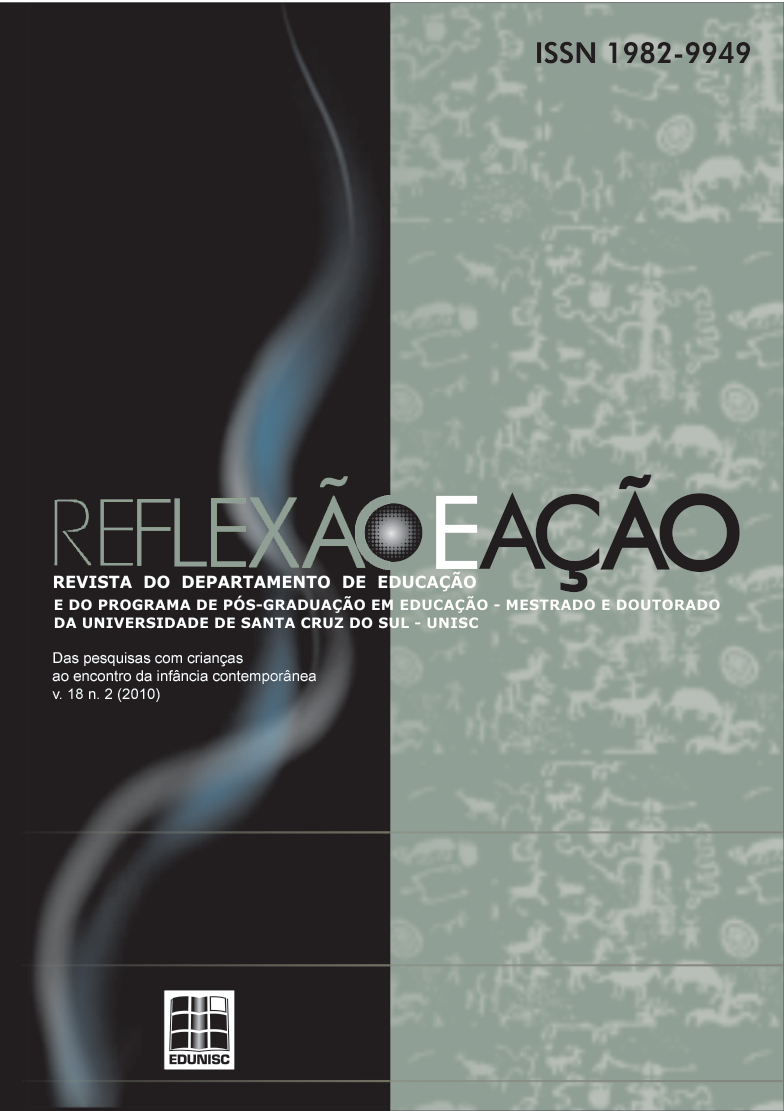THE PLACE OF CHILDREN IN RESEARCH ON CHILDREN: SOME PLACEMENTS IN THE PERSPECTIVE OF HISTORIC-CULTURAL THEORY
DOI:
https://doi.org/10.17058/rea.v18i2.1525Abstract
Defending the importance of the child's voice in research on childhood, I bring in this article, an essential argument of the historical-cultural approach to human development: the comprehension that when relating to culture, the child gives a personal sense to what she knows. This meaning shapes the new approaches the child, from there on, does to culture for new appropriations that promote development of conscience. In others words, this sense produced by the child affects her learning processes. From this standpoint, it seems imperative that research on infant also contemplates their participation as informants and not just as an object of this process. Keywords: Cultural-historical approach; child conception; research with small children.Downloads
Downloads
Published
How to Cite
Issue
Section
License
The submission of originals to this journal implies on the transference, by the author(s), of the printed and digital publishing rights. The author´s rights to the published articles are the author´s, the journal has the rights over the first publication. The author(s) can only use the same results in other publications, indicating clearly that this journal was the original publisher. Since we are an open access journal, the free use of articles is permitted for educational and scientific applications, as long as they inform the source according with the CC-BY license from Creative Commons.


